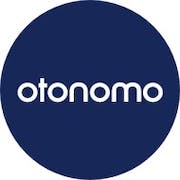Master Data Management (MDM) software is the backbone of any organization's data management strategy. With complex data and systems becoming the norm, MDM software is essential to ensure the accuracy, consistency, and reliability of data across an enterprise. However, not all MDM software is created equal, and choosing the right solution for your business can be a daunting task. This is where our Master Data Management Software buyer's guide comes in. In this guide, we'll explore the key features and considerations you should keep in mind when selecting MDM software. We'll also discuss the benefits of MDM, how it can drive business growth, and help you future-proof your data management strategy. So, whether you're a small business owner or a CIO of a multinational corporation, this guide has everything you need to know to make an informed decision about your MDM software investment.
What is Master Data Management Software
Master data management (MDM) software is a technology that ensures master data is coordinated across an enterprise. It is a discipline that relies heavily on data governance to create a trusted and authoritative view of a company's data. MDM solutions automate how business-critical data is governed, managed, and shared throughout applications, applying data integration, reconciliation, enrichment, quality, and governance to create master records. A master record is a "golden record" that contains essential information upon which an organization relies. MDM solutions comprise data cleansing, transformation, and integration practices. Companies using MDM software enjoy peace of mind that data throughout the enterprise is accurate, up-to-date, and consistent. MDM addresses the challenges associated with disparate applications that create, capture, and access data across multiple systems, applications, and channels. Some common use cases of MDM software are: - Customer data management: Ensuring that customer data is accurate and consistent across all applications, allowing for a more seamless customer experience. - Product data management: Managing and organizing product data across all channels to ensure that it is up-to-date and consistent. - Financial data management: Managing financial data such as accounts payable and accounts receivable, ensuring that records are up-to-date and that there are no discrepancies. - Supply chain data management: Ensuring that data related to the supply chain such as inventory levels and delivery times is accurate and consistent, allowing for efficient operations. MDM software is used by a range of companies, including those in industries such as finance, healthcare, retail, and manufacturing. Any company that relies on accurate and consistent data can benefit from using MDM software. In conclusion, MDM software is an invaluable tool for companies looking to streamline data management and ensure that their data is accurate and consistent across all applications.
Benefits of Master Data Management Software
Master Data Management (MDM) Software is increasingly becoming a key tool for businesses in enhancing their data management strategies. With the increasing volumes of data being produced, it has become essential to have an effective solution to manage it and derive value from it. MDM software provides this solution, and businesses that adopt it can enjoy various benefits such as: - Better Data Governance: MDM software helps to establish formalized processes for managing and governing data across the entire organization. This ensures that the data is accurate, standardized, and up-to-date, enhancing the quality of decision-making. - Improved Operational Efficiency: By centralizing and automating data management processes, MDM software reduces the time and resources required to manage data, enabling employees to focus on other critical tasks. This streamlines business operations, resulting in increased productivity and profitability. - Enhanced Customer Experience: MDM software allows businesses to have a single, accurate view of their customers, enabling them to provide personalized experiences that meet their unique needs and preferences. This enhances customer loyalty and satisfaction, increasing the chances of repeat business. - Better Compliance: With MDM software, businesses can ensure that data is always accurate, up-to-date, and compliant with regulatory requirements. This minimizes the risk of data breaches, fines, and reputational damage. - Improved Data Analytics: By providing a single, trusted source of data, MDM software makes it easier to analyze and derive insights, enabling businesses to make data-driven decisions. This results in increased competitiveness and better business outcomes. In conclusion, MDM software is an indispensable tool that businesses must adopt to improve their data management strategies. By providing better data governance, improved operational efficiency, enhanced customer experience, better compliance, and improved data analytics, MDM software enables businesses to stay ahead of the competition and achieve their strategic objectives.
Features of Master Data Management Software
Master Data Management (MDM) software is a powerful tool for businesses seeking to better manage their data. With MDM software, organizations can centralize their data from multiple systems, cleanse and standardize information, and ensure data quality, consistency, and accuracy across the entire enterprise. Here are ten common features that are typically found in MDM software: 1. Data Integration: MDM software allows businesses to merge and consolidate data from various sources, including customers, suppliers, employees, and products. This integration enables data to be standardized, simplified, and made available in real-time across the whole organization. 2. Data Cleansing: MDM solutions can detect and correct inconsistencies, duplicates, and errors in data. This translates into improved data accuracy, quality, and trustworthiness, relevant to making informed business decisions. 3. Data Governance: MDM tools provide a centralized system for data governance, which helps ensure that data is handled appropriately and consistently across the organization. Data governance helps maintain data integrity, security, and compliance. 4. Data Enrichment: With MDM, businesses can supplement their data with third-party information, such as demographic data, social media feeds, and real-time market data. This data enrichment enhances insights and helps improve decision-making. 5. Data Mastering: MDM software has the capability to identify entities or master data, define data types, and establish a single source of truth for the data set. This allows businesses to create a standardized view of their data, which underpins effective data analysis and insights. 6. Workflow Management: MDM offers workflow management features for ensuring that data management processes are followed consistently across the enterprise, from data collection and validation to approval and publishing. 7. Data Modeling: MDM tools support data modeling, which enables businesses to define the attributes, relationships, and hierarchies associated with different data sets. With this modeling, MDM software facilitates creating logical data models that support reporting, analysis, as well as planning and forecasting. 8. Data Security: By consolidating data into a centralized system, MDM software enables organizations to implement robust data security protocols and controls. This ensures that sensitive data is protected from unauthorized access, use, or disclosure. 9. Data Analytics: With MDM, businesses can leverage the power of data analytics to gain actionable insights. By providing a holistic view of the data, MDM software supports strategic decision-making, customer profiling, risk analysis, and operational performance monitoring. 10. Scalability: Finally, MDM software can scale with the organization, handling large volumes of data as the business expands. MDM facilitates this scaling by providing an integrated and flexible system that can accommodate the growing needs of companies over time. In conclusion, Master Data Management software offers an array of essential features that can help organizations streamline their data management workflow, improve data quality, and achieve a single, unified version of the truth. From data integration and cleansing to data analytics and modeling, MDM software can help businesses gain valuable insights to stay competitive and succeed in today's data-driven world.
Considerations of Master Data Management Software
Master Data Management (MDM) is a critical element of any business's technology strategy, and selecting the right MDM software is vital for success. With so many MDM software vendors to choose from, it can be challenging for businesses to determine the best fit for their needs. In this article, we'll explore the factors that businesses should consider when selecting an MDM software solution. Firstly, it's important to examine the capabilities of the MDM software to ensure that it aligns with the business's specific requirements. This includes features like data modeling and mapping, data standardization, and data quality management. A good MDM solution should also offer integration capabilities that allow for seamless data connection across various business systems. Another factor to consider is the level of customization that the MDM software can provide. Businesses should look for software solutions that can be tailored to meet their unique data management needs. This customization should include the ability to define data entities, relationships, and data quality rules. Ease of use is yet another critical factor to consider when selecting an MDM software solution. A good solution will offer an intuitive user interface that allows for easy data management, search, and processing. A solution that is user-friendly reduces the need for extensive training, which mitigates the risk of human error when working with important business data. Pricing is also an essential consideration when selecting an MDM software solution. It's important to consider the total cost of ownership, which includes not only the initial cost of the software but also ongoing maintenance and support fees. In addition, scalability requirements should be assessed. The software solution should provide flexibility for growth and evolving business needs without incurring significant additional costs. Security and compliance are critical considerations to ensure that the data is secure and compliant with relevant regulatory standards. Businesses must ensure the MDM software has robust security and governance features that offer data lineage, data encryption, and access controls. Lastly, consider the vendor's reputation and level of support provided. An MDM solution is a long-term investment for the business, and it's important to select a vendor that provides ongoing customer support and maintenance. The vendor should have a track record of successful MDM software implementations and the ability to provide support throughout the software lifecycle. In conclusion, businesses should consider a range of factors when selecting an MDM software solution, including software capabilities, customization, ease of use, pricing, security and compliance, and vendor reputation and support. By taking these factors into account, businesses can select an MDM software that can effectively manage data, reduce costs and risks, and drive long-term business success.
Software Trends for Master Data Management Software
In today's world, data is king - and this is why companies that invest in Master Data Management (MDM) Software will undoubtedly win. For businesses to streamline their operations, properly coordinated master data is a must-have. In 2023 and beyond, MDM software will play an even more significant role in enterprise Data Management and Governance strategies. Cloud-native platforms will host over 95% of new digital workloads by 2025, which will drive the market towards hybrid and multicloud data, augmented Data Management, and data fabric. In this era of data, HRM software will take a lead role in talent acquisition and retention. Furthermore, Data Governance is expected to become a fundamental part of service delivery processes in 2023, driven by automation of DG processes, data migration to the cloud, and MDM tools becoming even more automated. Investing in MDM software that supports global identification, linking, and synchronization of master data across different departments can be a game-changer, but it must be done with proper implementation and support from knowledgeable staff to achieve the desired goals.






